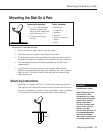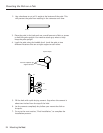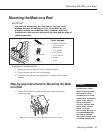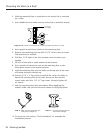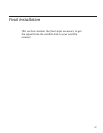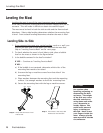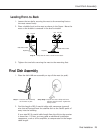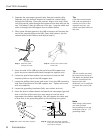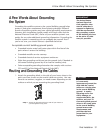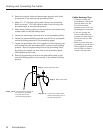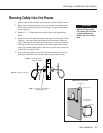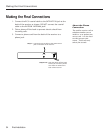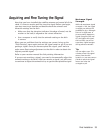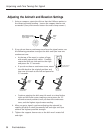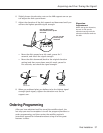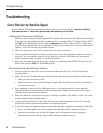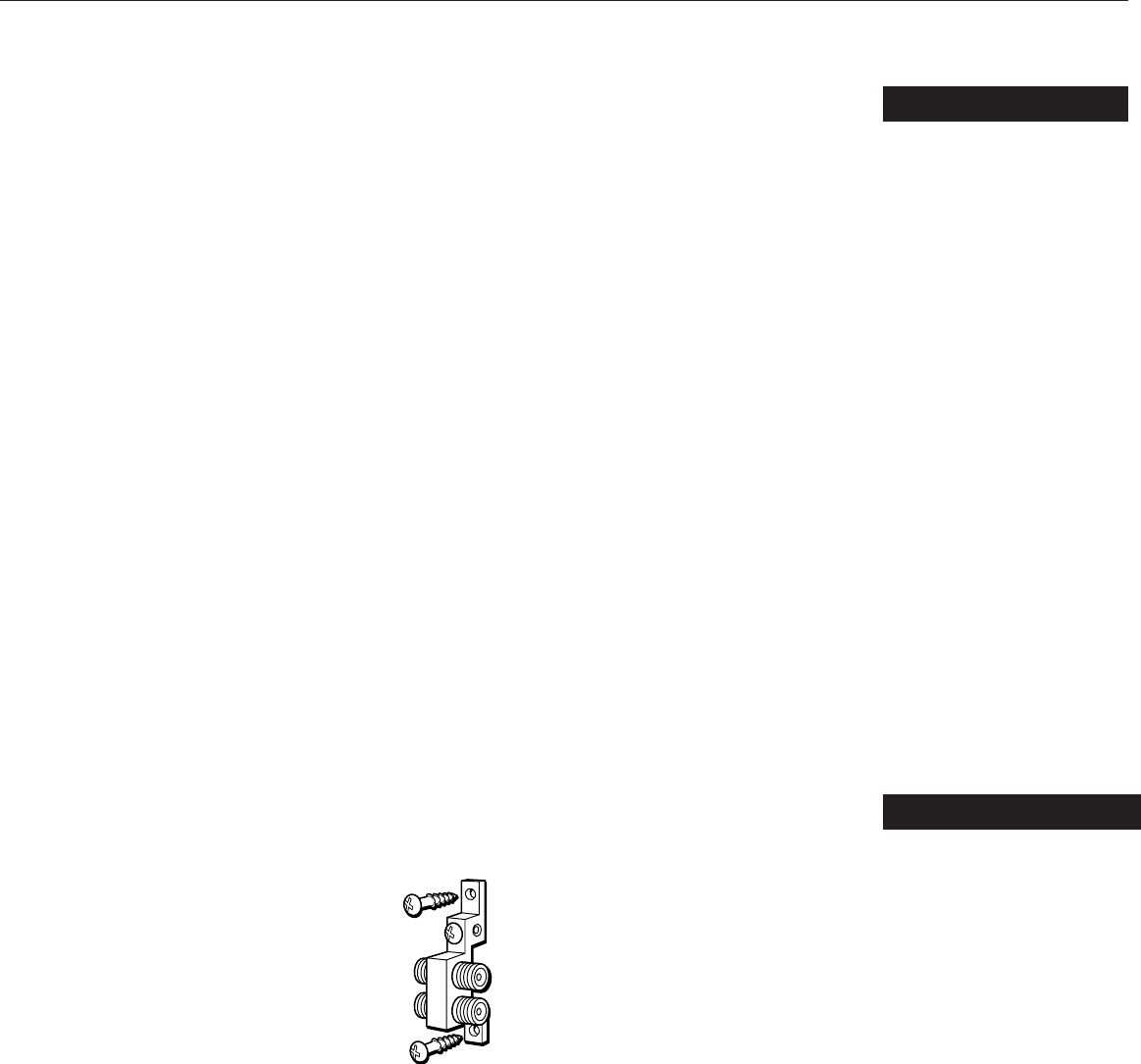
Final Installation 31
A Few Words About Grounding
the System
Grounding the satellite system to the central building ground helps
protect it and other components from lightning damage. Different
brands of satellite systems may have special grounding requirements.
However, dish installation should comply with local codes and the
National Electrical Code (NEC). Refer to your satellite system’s user
guides for any other additional grounding information. Grounding the
satellite system is something you can probably do yourself. But if
you’re not sure, you should contact a qualified electrician.
Acceptable central building ground points
• Grounded interior metal cold water pipe within five feet of the
point where it enters the building.
• Grounded metallic service raceway.
• Grounded electrical service equipment enclosure.
• Eight-foot grounding rod driven into the ground (only if bonded to
the central building ground by #6 or heavier bonding wire).
• Other acceptable grounding electrodes that comply with sections
250 and 810 of the National Electrical Code (NEC).
IMPORTANT
The United States
National Electrical
Code specifies that
coaxial cable that is
exposed to lightning
shall be connected to
the grounding system
of the building as close
to the point of cable
entry as possible.
Routing and Grounding the Cables
1. Attach the grounding block to the side of your house close to the
point you have chosen as the coaxial cable entry point. You may
have to use anchors, togglers, or wood screws depending on the
surface on which you are mounting the grounding block.
Step 1: Attach the grounding block to side of your house at
your designated entry point.
A Few Words About Grounding the System
CAUTION
It is extremely
important to ground the
dish AND the coaxial
cables to a single point
in the central building
ground. A nearby
lightning strike can
easily damage an
ungrounded dish, the
receiver and your TV.
Connecting both ground
wires to the same point
in the central building
ground meets code
requirements and
provides the best
protection for your
equipment.



